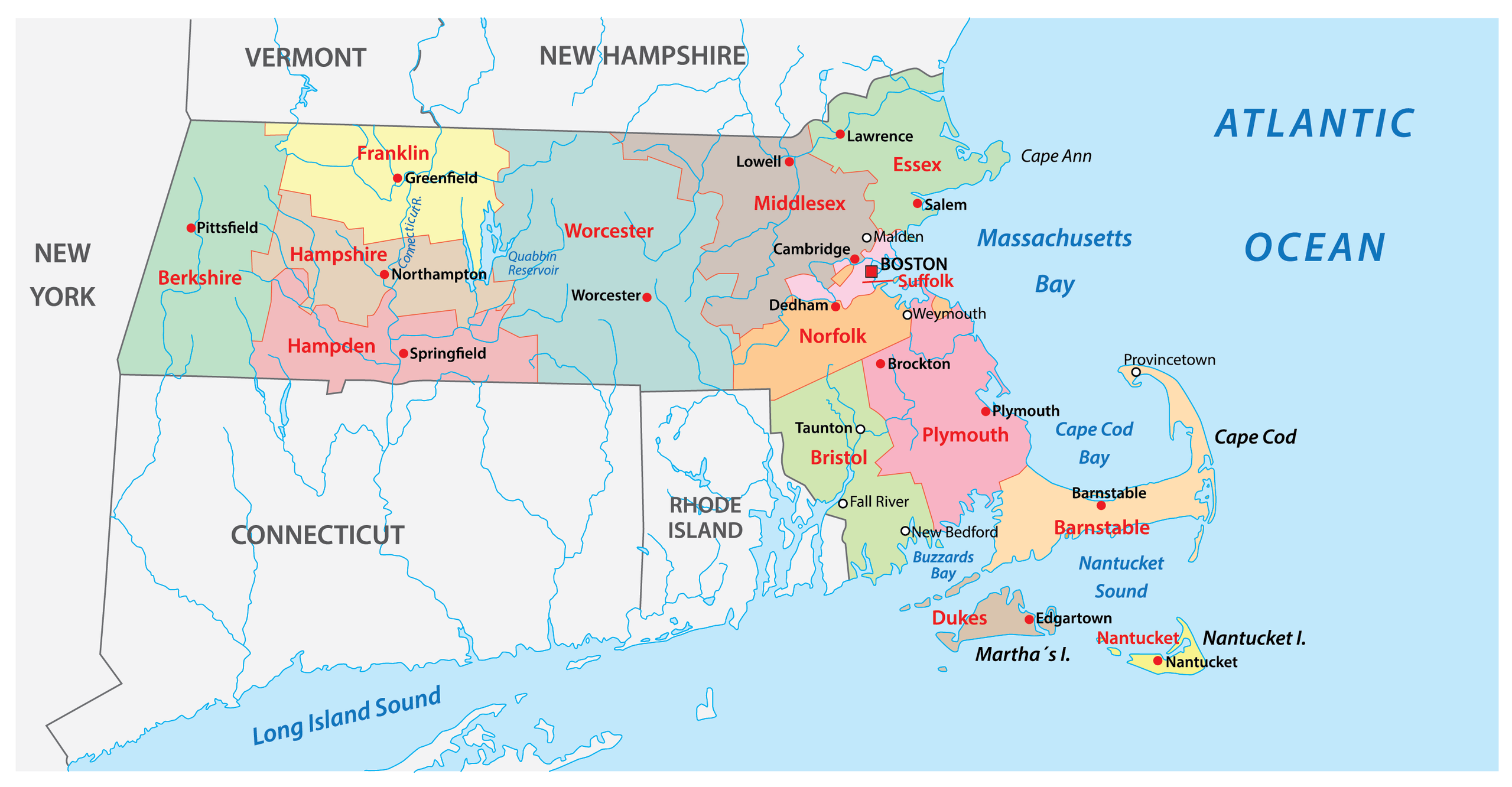Massachusetts Judge Charges ICE Agent With Contempt Of Court: What It Means For Our State
Something rather unusual happened recently in Massachusetts, a place with a very long history, going back to early English colonization. A Boston municipal court judge made a big decision. This judge held a federal immigration agent in contempt of court. This happened because the agent detained a person right in the middle of their trial. It was, you know, a pretty significant moment in the ongoing discussions between local justice systems and federal agencies.
This event, frankly, highlights a growing tension. It’s about where the line sits between what state courts do and what federal immigration agents can do, especially when someone is already involved in a local court case. Massachusetts, a constituent state of the United States of America, has always been a spot where important legal and social matters get talked about, and this situation, in a way, is no different.
People are asking a lot of questions about this. What does it mean for the person who was detained? What does it mean for the agent? And what does it mean for the way things work in our courts? This article will try to help you get a better grip on what went on and why it matters, so you can, like your, understand the different sides of this legal issue.
- Plasma Donation Holland Mi
- Dutch Bros Wallpaper
- Scuba Girl Asu Leaks
- Chesterfield Indiana Weather
- Qira Rose Leaks
Table of Contents
- The Incident Unfolds
- Understanding Contempt of Court
- The Legal Clash: State Versus Federal Authority
- Why This Matters for Massachusetts
- Implications for the Future
The Incident Unfolds
Just last week, actually, a man was in the middle of his criminal trial at Boston Municipal Court. He was arrested by federal immigration agents right outside the courtroom. This happened on a Thursday. Then, on Monday, a judge in Massachusetts made a ruling about it. The judge found a U.S. Immigration and Customs Enforcement agent, often called ICE, in contempt of court for that action. This detention of a Dominican man during his trial sparked quite a bit of discussion, and stuff.
The man, whose trial was not yet finished, remains held. This has led to a legal fight that, apparently, has now moved into federal court. It’s a situation where one part of the government, the local court, is saying something happened that went against its rules, and another part, the federal agency, sees things, you know, differently. This kind of dispute, really, isn't something you see every day in our justice system.
Understanding Contempt of Court
So, what does it mean when a judge charges someone with contempt of court? Basically, it means that a person has done something that disrespects the court's authority or interferes with its work. It’s a way for judges to keep things running smoothly and fairly in their courtrooms. This could be anything from shouting at a judge to not following an order, or, in this case, seemingly interfering with an ongoing legal proceeding. It’s a pretty serious thing, to be honest.
- Concerts In Boston
- Curry Shoots Over Wembanyama
- Clima De Sioux Falls
- Gordon Grigg Franklin
- Guardians Of The Galaxy Lee Pace
When a judge declares someone in contempt, there can be consequences. These might include fines or even jail time, depending on how serious the action was. It’s a tool judges have to make sure everyone respects the legal process. In this situation, the judge felt that the agent’s actions, detaining someone mid-trial, got in the way of the court’s ability to conduct its business properly. You can learn more about legal procedures like this on a legal information site, for example, about the different types of contempt and their repercussions. Learn more about contempt of court.
The Legal Clash: State Versus Federal Authority
This incident really highlights a bigger issue: the ongoing disagreement between state and federal authorities, especially concerning immigration matters. Massachusetts, you know, has its own rules and ways of doing things in its courts. Federal agencies, like ICE, have their own missions and powers given to them by federal law. Sometimes, these two sets of rules can seem to bump into each other. This is, sort of, what happened here.
The attorney for Massachusetts, Leah Foley, sent a strongly worded letter to the Boston judge who made the contempt finding. She basically said that while the judge might not agree with the actions of the immigration agent, federal officers have the authority to do their jobs. This shows, clearly, that there are different viewpoints on where one authority ends and another begins. It’s a complex area of law, and cases like this bring those complexities right into the open.
The core of the argument often revolves around whether federal agents need a warrant from a judge to make an arrest inside a courthouse, or if a person is considered "fair game" for arrest once they step outside the courtroom itself. This particular case, as a matter of fact, really pushed that question to the forefront. The judge’s decision implies that, in the court’s view, the agent’s actions crossed a line, disrupting the court’s authority over its own proceedings and people within its purview.
Why This Matters for Massachusetts
Massachusetts has a rich history, going back to the Plymouth Colony founded in 1620 by the Pilgrims of Mayflower. In 1630, the Massachusetts Bay Colony, taking its name from the area, was established. Our state is known for its historical sites, from Boston, one of the oldest cities, to the beaches of the eastern Massachusetts Bay area. It’s a place that, in a way, values its traditions and its own way of doing things. You can learn more about our state's long history right here on our site.
This recent court action matters a lot for the people of Massachusetts. It touches on how justice is served in our local courts. When someone is in the middle of a trial, the court has a responsibility to ensure that process can continue without outside interference. This judge’s decision, you know, sends a message about protecting that process. It says that the court's authority over its own space and proceedings is something that needs to be respected by everyone, including federal agents.
For residents, especially those who might be involved in the justice system, this event raises questions about safety and due process. If someone can be detained while their trial is ongoing, it could make people feel less secure about coming to court. This decision, in short, aims to reinforce the idea that courthouses are places where legal matters can proceed without interruption from other government agencies. It’s about maintaining the integrity of our local legal system, which is, honestly, a pretty big deal.
Implications for the Future
The legal battle over the federal agency’s actions has now spread to federal court. This means that the question of whether a state judge can hold a federal agent in contempt for actions related to an arrest in or near a courthouse will likely get a closer look at a higher level. It’s a situation that could, you know, set a precedent for similar cases in other states. This is not just a local issue anymore; it has broader implications for how state and federal powers interact across the country.
The outcome of this ongoing legal discussion could affect how federal immigration agents operate around courthouses in Massachusetts and, perhaps, elsewhere. It could lead to clearer guidelines or understandings between different levels of government about where their authorities begin and end. For people who care about civil liberties and the proper functioning of the justice system, this case is, essentially, one to watch. It truly speaks to the balance of power that is so central to our system of government. For more about legal happenings in the area, check out this page.
People Also Ask
What does "contempt of court" mean in simple terms?
Contempt of court, basically, means someone has acted in a way that disrespects the judge's authority or gets in the way of the court doing its job. It's like breaking the rules of the courtroom. Judges use it to keep things orderly and fair. It can lead to fines or, you know, even time in jail.
Can a state judge really charge a federal agent with contempt?
Yes, a state judge can, in fact, charge a federal agent with contempt. This particular case in Massachusetts shows that it can happen. However, it often leads to bigger legal arguments between state and federal authorities, as each side has its own powers and rules it follows. It’s a pretty complex area of law, and these situations, like your, highlight those difficulties.
What happens next in this Massachusetts ICE agent case?
The legal fight over the agent’s actions has moved to federal court. This means that higher courts will now look at the judge's decision and the arguments from both sides. The outcome could, potentially, set new understandings or rules for how federal immigration agents operate around state courthouses. It's a situation that, in some respects, is still developing.
- Auroral Garden Minecraft
- Watch The Land Before Time
- 2026 Honda Prelude
- Best Day Ever
- Palworld Prepare For Next Update

Massachusetts Maps & Facts - World Atlas

Map of Massachusetts - Guide of the World

Geographical Map of Massachusetts and Massachusetts Geographical Maps